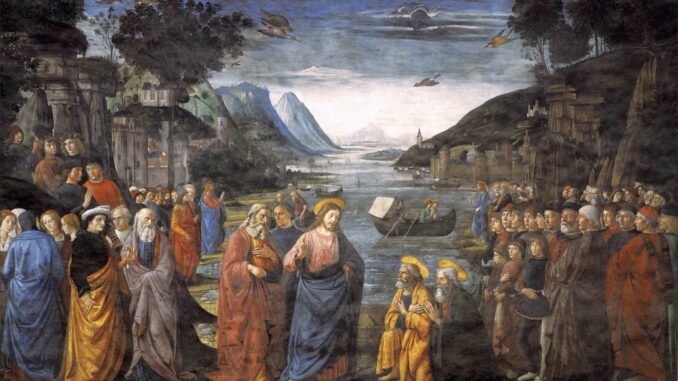
“The disciples were first called Christians in Antioch.” Acts 11:26
The lives of the converts were so different from their unbelieving neighbors, that they were called Christians. It is supposed that the name was given them in mockery or contempt by the heathen people of Antioch. But the name stuck, and is now used universally to describe those who follow Christ. It may not be the very best of names.
Perhaps disciples is a better term — disciples means learners, followers. We should all be disciples of Christ and should ever be learning of Him, growing in grace and likeness of Him as we follow Him.
Perhaps believers is a better name. It carries in itself the thought that we are saved by believing on Christ. It is faith which works the victories in this world.
Perhaps followers would be better. To follow Christ is to receive Him as Master and to cling to Him in obedience and devotion wherever we may go.
But the word “Christian,” given at Antioch as a sneer — is now used everywhere. It is full of meaning. Those who are Christians should be like Christ — “little Christs.” They should represent Christ in the world. Those who see them — should see the image of Christ in them!
Matthew Henry says, “Hitherto the followers of Christ were called disciples, that is, learners, scholars; but from that time they were called Christians. The proper meaning of this name is, a follower of Christ; it denotes one who, from serious thought, embraces the religion of Christ, believes His promises, and makes it his chief care to shape his life by Christ’s precepts and example. Hence it is plain that multitudes take the name of Christian — to whom it does not rightly belong! But the name without the reality — will only add to our guilt. While the bare profession will bestow neither profit nor delight, the possession of it will give both the promise of the life that now is, and of that which is to come.”
J.R. Miller was a pastor and former editorial superintendent of the Presbyterian Board of Publication from 1880 to 1911. His works are now in the public domain.



